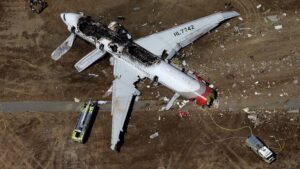In July 1892, a dispute between Carnegie Steel and the Amalgamated Association of Iron and Steel Workers exploded into violence at a steel plant owned by Andrew Carnegie in Homestead, Pennsylvania. In what would be one of the deadliest labor-management conflicts in the nation’s history, some 12 people were killed when striking workers attacked 300 Pinkerton detectives hired by the plant’s management as security guards.
Carnegie Steel vs. Steelworkers’ Union
By 1892, Andrew Carnegie had worked his way up from his poor childhood in Scotland to become one of the wealthiest and most powerful industrialists in the United States. He was the majority shareholder of Carnegie Steel, the nation’s largest steelmaker, as well as a leading philanthropist who voiced public support for labor causes, including the right of workers to unionize.
But when Henry Clay Frick, chairman and chief executive of Carnegie Steel, wanted to cut workers’ wages at the plant in Homestead, located near Pittsburgh on the south bank of the Monongahela River, Carnegie supported Frick’s efforts despite his public pro-labor stance. Homestead was one of the most important of Carnegie Steel’s vast network of iron, steel and coke works, and Frick’s efforts would pit him against the Amalgamated Association of Iron and Steel Workers, one of the largest unions in the country.
Beginning of the Homestead strike
With the union’s three-year contract with Carnegie coming to an end in June 1892, Frick announced pay cuts for hundreds of Homestead workers. After refusing to negotiate with the union, he shuttered the Homestead steel mill on June 29, locking 3,800 workers out. Only around 725 of those workers belonged to Amalgamated, but all of them voted to strike, surprising Frick, who had assumed only union members would strike.
After Frick had a high fence topped with barbed wire built around the mill itself, leading workers to dub it “Fort Frick,” armed workers surrounded the plant and sealed off the town. In order to protect the strikebreakers he planned to hire, Frick followed the example of many industrialists battling unions and called in the Pinkerton National Detective Agency. Pinkerton detectives had become known for infiltrating unions and breaking strikes nationwide, including at another Carnegie plant a few years earlier.








